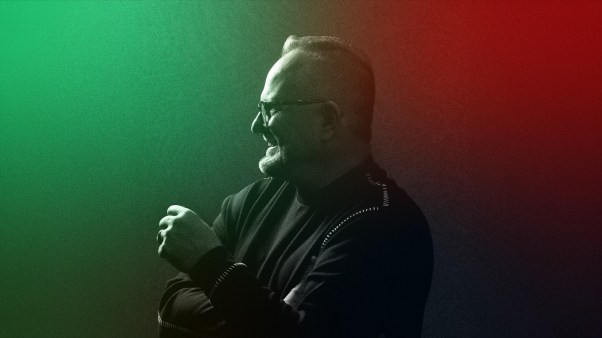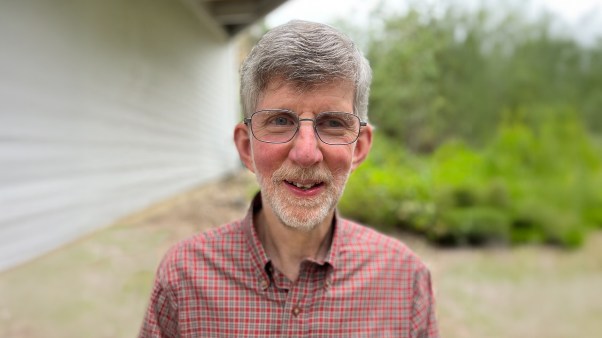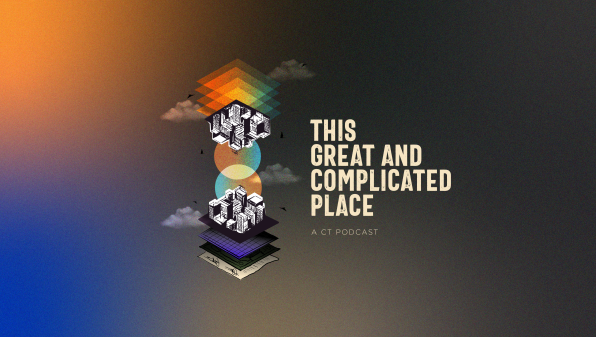I am both black and evangelical.
Two years ago I was challenged on these dual allegiances because they have been deemed mutually exclusive. It was during the 2016 presidential campaign and I was online registering for the annual conference of the Evangelical Theological Society. A friend was nearby and, upon noticing what I was doing, exclaimed, “You’re an evangelical?!”
It was a challenging question. For some it would seem odd. My friend is seminary-trained, robustly academic, and his theology abides squarely within the pale of historic Christian orthodoxy. He would seem to be the quintessential evangelical. In spite of this, he has chosen to cast off the label.
Why? Because he is African American and acutely aware of the intricacies associated with being both black and evangelical. He is unsettled by the bifurcation of the gospel and social ethics. In his estimation, the division is the byproduct of privilege and is a reductionistic understanding of the church’s mission. While he concedes that evangelicalism is a theological movement, he contends that it has been shaped by the dominant culture. The movement has a cultural identity that debases him based on his ethnicity. Consequently, he has chosen to uphold his theological identity while eschewing the term evangelical and its baggage. In contrast, I have concluded that preserving my theological identity obliges me to redeem the term and unpack the movement’s baggage.
In my opinion, my friend deserved a response. His confusion is understandable because he knows that I affirm his assessment. I too have been wounded by evangelicalism’s posture toward social ethics. But I have concluded that an exodus of ethnic minorities amounts to segregation of the movement and only contributes to the problem. So I remain. This assertion intrigued him. He leaned forward, knuckle-tapped the table between us, and said, “Tell me your story.”
My Journey: Understanding the Roots of Evangelicalism
My opinion is informed by a consideration of evangelicalism’s history and theological method—how one does theology. At first glance, evangelicalism seems exclusively theological, but this overlooks the movement’s cultural modifications. Historian David Bebbington highlights four marks that distinguish evangelicalism. He contends that evangelicals prioritize conversionism (the conversion experience), activism (evangelism and good works), biblicism (the authority of the Bible), and crucicentrism (the power of Christ and his work on the cross). This is known as Bebbington’s Quadrilateral and, in my estimation, it is a commendable summary of evangelicalism’s defining attributes.
However, it does not give much attention to the manner in which historical and cultural contexts informed the theological method of nascent evangelicalism. For example, the understanding of activism may vary according to cultural identity and values. Diverse cultural contexts contributed to varied ethical priorities and a consequent rift between black and white churches in America.
The divergence is not theological. Based solely on the standards set by Bebbington’s Quadrilateral, both camps are indisputably evangelical. However, they diverge in regard to applied theology. I contend that this is the reason my friend cannot reconcile his blackness and his evangelical theology. While he can affirm the movement’s doctrine he is troubled by the movement’s culturally-informed theological method.
Cultural presuppositions are inherent to a theologian’s method. Intellectual integrity compels us to recognize that theologians do not do theology in a contextual vacuum. This is not necessarily bad. Personal and cultural experiences create lenses that are essential to the discovery of objective truths. However, to disregard this reality is detrimental. One must be mindful of how cultural contexts contribute to today’s ethnic rift.
This is relevant because historians identify the sixteenth-century Reformation and the eighteenth-century Great Awakenings as essential to the formation of modern-day evangelicalism. Both eras were informed by culturally dominant (e.g., Western, white, male) characters who ignored subdominant theological lenses. Modern evangelicalism was shaped during eras that avowed a hierarchical distinction among ethnic groups. Inevitably, prominent theologians of these eras incorporated these presuppositions into their theological methods.
Martin Luther, the most renowned Reformer, was a brazen anti-Semite. The Southern Baptist Convention, today’s largest evangelical denomination, had a pro-slavery platform as part of its founding. Jonathan Edwards and George Whitefield, stalwarts of the Great Awakenings, owned black slaves. Their contextual presuppositions directly informed their orthodoxy and, consequently, their orthopraxy. In fact, Whitefield presumed that slaves were essential to his divine mission! It is irresponsible to ignore the manner in which these besetting sins have mixed with evangelicalism in the form of cultural norms.
Ironically, it was the racism of men like Whitefield who prompted the experiential formation of African American theological method. Black theologians recognized social ethics as essential to the message of the cross. That idea was not their invention; their experience as marginalized human beings allowed them to see the objective truth. They recognize that crucicentrism is truncated if it is not applied to social ethics. In America, this divergence in theological method has produced co-existing, overlapping, yet quietly distinct evangelical movements—one white, the other black.
By and large, black and white evangelicals share orthodoxy. However, their cultural and experiential differences resulted in divergent theological methods, which explains the disagreements regarding orthopraxy. Marginalization highlights ethical values that may be overlooked by a privileged group. Consequently, the two groups do not apply the gospel in precisely the same manner. Historically, the black church has espoused social ethics as inextricably linked to the gospel’s message. Their ethical contentions were derived from their evangelical orthodoxy after being legitimately filtered through the experience of marginalization.
Redeeming the Term
For me, knowing the theological history of evangelicalism served only to give it credence. In its unamended form, the movement is temporally and eternally effectual. It hinges upon the gospel (Gk. euangelion) from which its name is derived. Therefore, treating the ethnic rift as insurmountable would be inappropriate. If the gospel is central to evangelicalism, then crucicentrism is the foundation upon which it is built. Unmodified evangelicalism fixates on the cross. Conversionism, activism, and biblicism are glorious byproducts of Christ and his work. All that was shattered by Adam’s fall can now be made whole! This applies to social ethics. Justice is intrinsic to evangelicalism because of the gospel. The gospel changes how we live and justice is the result; how could I dare eschew it?
At this point my friend stopped me, leaned across the table and asked, “Since there are black evangelicals, then why would the rift persist?”
A good question. The persistence of the rift is nuanced; there is more than one cause. However, the poor perception of the twentieth-century Civil Rights Movement has contributed to the problem. Erroneously, we speak of the Civil Rights era in secular terms. In actuality, the prominent leaders of the Civil Rights era depended heavily upon the cross as the authority behind their efforts.
The Civil Rights Movement is a third, and sadly snubbed, era of evangelicalism’s formation. While sixteenth-century Reformers attended to orthodoxy and eighteenth-century Great Awakeners reformed evangelistic mission, twentieth-century Civil Righters like Adam Clayton Powell Sr. and John M. Perkins sought to reform orthopraxy—specifically, the gospel’s implications on social reform.
The African American church of the twentieth century added her voice to her evangelical predecessors. Those who recognize this are able to relish in a theological movement that is mindful of the marginalized. The black evangelicals of the Civil Rights era are my role models. By adding my voice to evangelicalism, I am helping to highlight its commendable and comprehensive message. So when my friend exclaimed, “You’re an evangelical?!” my reply was an unabashed, “Yes.” I joyfully add my voice to the movement’s identity and boast of the incomparable gospel. I will remain.
Upon hearing my assertions my friend leaned back in his chair and said, “You have given me much to consider.” If you knew him, you would hear his words as high praise. As is his way, he sought to affirm me while forcing humility upon me. I call that a win.
Tell Me Your Story
I genuinely pray that what I have written will be transformative for all who read it. But I would be remiss if I did not point out the wisdom of my friend. He is an anonymous star in the story. My ideas would have remained cloistered if they had not been exposed through genuine discourse. Instead of launching into a monologue seeking to rebuke me, my friend initiated a dialogue, hoping to understand me. While his mind was not wholly changed, he did budge. How did that happen?
While his initial assessment of me was based solely on his perspective, our dialogue allowed him to gain an additional perspective. I provided no new details, but I introduced him to my understanding of their relevance. If the rift that exists between black and white evangelicals derives from a lack of mutual understanding, then perhaps dialogue is the initial step toward reconciliation. My friend’s willingness to hear me out and his genuine curiosity made it possible for understanding—if not agreement—to occur.
I fear that the division between white and black evangelicals is such a weighty problem that it has resulted in our rejection of this initial step toward a solution because it seems too simple. Evangelicalism’s ethnic rift will be narrowed when each side crosses to the other and initiates genuine dialogue. Rebuking has become our default strategy and it is widening the gap.
Imagine a world in which black and white evangelicals sit consciously over a meal and ask hard questions.
My hope is that you will cross the rift, meet over a cup of coffee, and say, “Tell me your story.” Then, sit quietly and attentively and listen in an effort to see through the lenses of someone with experiences that are foreign to you. Though seemingly small, I believe conversations like these can bear fruit toward putting evangelicalism’s house in order.
Brandon Washington is pastor of preaching and vision at The Embassy Church in Denver, CO.








